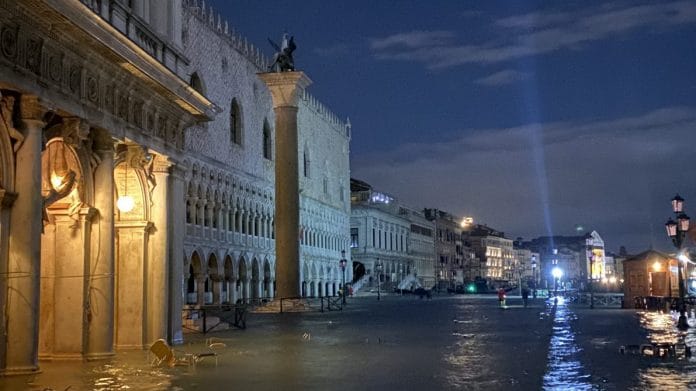Highest tide in 50 years floods tourist paradise Venice
The city of Venice has faced record-breaking floods this year, with a six-foot tide — the highest the city has seen since 1966 — hitting the Italian tourism hub this week. Italy’s record shows that, of the top 10 tides, five occurred in the last 20 years and one in 2018, adding more worrying statistics to the study of the climate change crisis. More on BBC.
Melting sea ice is helping diseases spread, says study
The possibly fatal phocine distemper virus (PDV), thus far found only in northern Europe and the east coast of North America, has now been spotted in animals from waters to North America’s west. In a new study, researchers have attributed the spread of the disease to sea-ice melting and, thus, climate change. More on National Geographic.
Narwhal, a puppy with a ‘tail’ on its face, wins internet’s heart
A puppy named Narwhal went viral this week because of a peculiar feature — it has what looks like a tail on its face. The tail isn’t a functioning body part and doesn’t wag. Doctors aren’t entirely sure how it came to be — it might be a “super rare” case of a parasitic twin or just a “weird outgrowth”. More on The New York Times.
The story behind the ‘ice eggs’ on a Finnish beach
On Finland’s Marjaniemi beach, amateur photographer Risto Mattila stumbled upon an otherworldly sight last Sunday — bales and balls of ice of various sizes. The balls are formed under very specific conditions: Calm and cold water where ice could form, ice crystals or grit around which water could solidify into ice, and wind that could blow the water around the grit and crystals to form more layers of ice. More on Science Alert.
Also read: Why this woman in Colombia didn’t develop Alzheimer’s despite being at great risk for it






